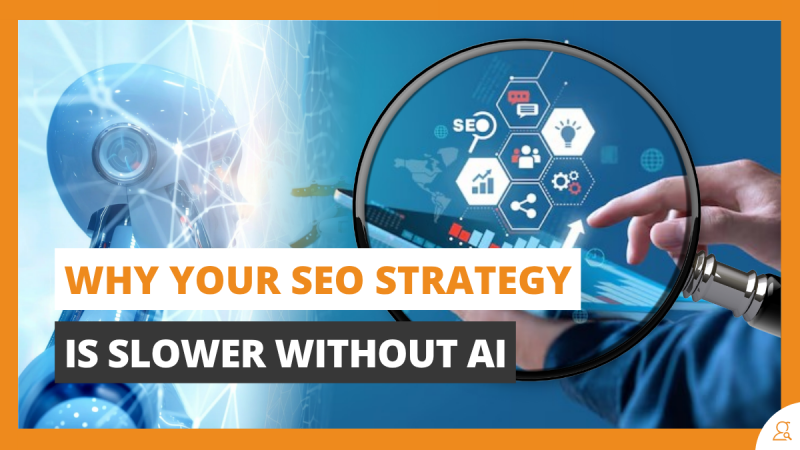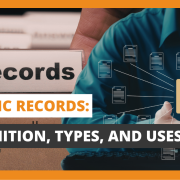11
Why Your SEO Strategy is Slower Without AI
Trying to stay on top of SEO without help is like doing everything the hard way. Search engines update quickly, content needs grow, and competitors aren’t slowing down. If you’re still using old tools like spreadsheets and doing everything manually, that’s going to weigh you down.
AI is not a shortcut. It’s a smart way to stay up to date. Without it, your SEO work becomes slower, less flexible, and harder to manage. It’s not only about efficiency. It’s also about spotting better opportunities earlier. Teams that delay using these tools miss out on chances that are already helping others get ahead. If you need professional seo services with the help of the top orthodontist SEO agency in the market, then look no further. With affordable plans that help get your practice more patient, this local seo for orthodontists offers SEO plans that cover things such as Google Business Profile management, backlink building, citation building, analytical reports, and much more!
Why Speed Matters in Modern SEO
Search engines move fast. Changes don’t take weeks anymore. They can show up in just a few hours. AI tools help by spotting patterns, adjusting content fast, and pointing out issues before they grow. Digital platforms like PESO help teams finish link-building or site checks in minutes instead of days. You won’t need to wait days for reports or waste time guessing which areas need work. That’s what gives small teams and solo marketers a fighting chance.
With AI, keyword research, scoring pages, and tracking results happens more often and with less effort. Your site can adjust faster when your ranking drops, when an update hits, or when your content starts to lose clicks. The goal isn’t to do everything. It’s to learn fast and act when it really counts.
If you wait too long to make that shift, it becomes harder to get noticed. A delay of a few days might not seem like much, but it can be the difference between ranking and disappearing.
Manual SEO Drains Time and Focus
Old-school SEO processes can be weighed down by routine tasks — checking backlinks, crafting meta tags, tweaking headers. Those jobs are time-consuming, but they rarely provide strategic insight. Multiply that by dozens of pages, and an hour disappears from your life every week.
AI simplifies that. Technical problem alerts flash instead of spending afternoons on content audits. Rather than having to sift through keywords manually, that sort of stuff is surfaced by algorithms for you, with the best opportunity being the highest of what’s trending right now.
More than anything, AI saves your energy. Instead of switching between small fixes, you can work on strategy, user experience, and planning. That’s where things start to improve. You move from fixing problems to building real progress. And when your work is more focused, it’s easier to explain what’s working to your team or clients.
Why is Automation Important?
Automation helps you do more with less. When a task doesn’t need a person, it’s better off done automatically. Even simple things—like dialing a number—are now done with one click. If a machine can handle it, there’s no reason you should waste your time.
Think of SEO automation as the equivalent of integrating APIs into a CRM or software platform. Once it’s properly configured and set up to achieve your specific objectives, you’re off and running.
What Tasks Should You Automate First?
Start with what takes the most time and doesn’t really need your input. The first one is technical audits. Set up a tool that checks your site every day. It can find problems like missing meta tags, broken links, or slow pages. Fixing those right away means you avoid bigger issues later.
Keyword tracking is another one to automate. You don’t need to guess anymore. Let a tool tell you which keywords are going up or down. You’ll know right away if you’re losing ground or gaining traction. This lets you adjust your pages before traffic drops.
You can also automate how your content is scored. Some tools look at what your page is missing compared to top results. They tell you what to add, whether that’s a subtopic or an internal link. You’ll know how to get closer to page one without guessing what Google wants.
These changes don’t take away your role. They just help you save time and do smarter work. Instead of always repairing things, you get to focus on what moves the needle. You can also test ideas faster and learn which ones give better results.
Other Teams are Already Moving Faster
No matter your company size, others are already using AI tools to speed things up. They’re finding content gaps quicker, updating old posts sooner, and jumping on search trends early. They’re doing this without hiring more people. Their tools make work feel lighter.
That doesn’t mean you need to take people out of the process. It just means tools are now the standard starting point. If you wait too long, your process falls behind. You’ll spend more time catching up than actually growing.
What Slows You Down Without Realizing It
Your process might look good on paper, but some things make it slow. Switching between too many tools is one of them. If you’re using different apps for each job, that adds friction and takes time. Even a few seconds each time adds up fast.
Another problem is not knowing who’s in charge. If no one owns a task like checking old posts or fixing errors, it gets delayed. AI helps by setting clear steps and order of work, so there’s no confusion. That kind of structure keeps everyone moving.
Old posts can also slow you down. What worked last year might not help now. You may not notice a drop until your traffic dries up. AI tools catch these issues early so you can fix them before they hurt you. Instead of wondering what happened, you’re already working on the update.
Speed isn’t just about fast results. It’s also knowing what’s wasting your time and removing it. That’s what makes AI more than just another tool—it helps you stay focus on what matters. You’re able to see what’s important and what can wait.
AI Brings Real-Time Learning
AI learns fast. When something starts working, it notices. It updates suggestions and makes them better each time. It picks up changes in rankings, searches, or traffic patterns that you may not see right away. The faster it learns, the faster you can act.
This feedback helps your SEO change quickly. You get alerts and updates while things are happening. That means less guessing and more action. And that builds confidence in your decisions.
As this feedback flows in automatically, you never miss golden moments of opportunity. You can then act immediately when a topic starts trending or a competitor loses ranking.
Can You Combine AI With Human SEO Strategy?
AI can help make SEO faster and more efficient, but it’s most effective when it adds to human judgment. Tools can flag what’s missing, but only people can determine how it fits in with the brand voice, tone, or customer journey. It’s why the best strategies are the ones that leverage AI to handle the “what” and humans to guide the “why.”
For instance, an AI writing tool could recommend a section on pricing for a blog post, but it can’t articulate how your pricing model stacks up against competitors in a way that’s consistent with your business strategy. And that context is provided by your team.
You could also use AI as a kind of checkpoint. As you develop content (or update old posts), run it through an optimization tool to ensure you’re not missing anything or repeating too much! Then, transcribe the other way — with the human first. Moreover, you can use an AI detector to see if the content on your site was written by AI
Automation and intention team up in this way to protect you from creating all the bland, generic content while making things fast and efficient. At issue isn’t just replacing people. It’s about helping spread their ideas further, faster.
FAQ: 4 Quick Answers About AI SEO Tools
1. Do I need to be a tech expert to use AI SEO tools?
No. Most platforms are built with simple dashboards, tutorials, and plug-and-play features. If you can use standard SEO tools, you can use AI-powered ones.
2. Will AI replace my SEO team?
AI does not replace your team—it supports it. It handles repetitive tasks so your team can focus on strategy, creativity, and growth.
3. Are AI tools accurate when it comes to keyword trends?
Yes. Many AI tools track live search behavior and surface emerging trends faster than manual research. Just make sure to review the context before acting.
4. Can AI help with multilingual SEO?
Some platforms do offer AI translation and localized content support. However, for best results, it’s smart to pair AI with native-speaking editors.
Final Thoughts
AI won’t take over your SEO work, but it will make things easier and faster if you let it. SEO moves quickly now. You can’t wait and hope things work. You need to learn fast and act fast.
AI tools help you see what’s wrong, fix things faster, and stop wasting time on tasks that don’t lead to growth. They give you more chances to improve how people experience your site. When you’re able to see results sooner, it also builds trust with clients or leadership.
SEO now rewards speed and smart decisions. AI gives you the edge to fix faster, react sooner, and skip wasted effort. Waiting isn’t a strategy. Moving now is what keeps you visible and ahead.












